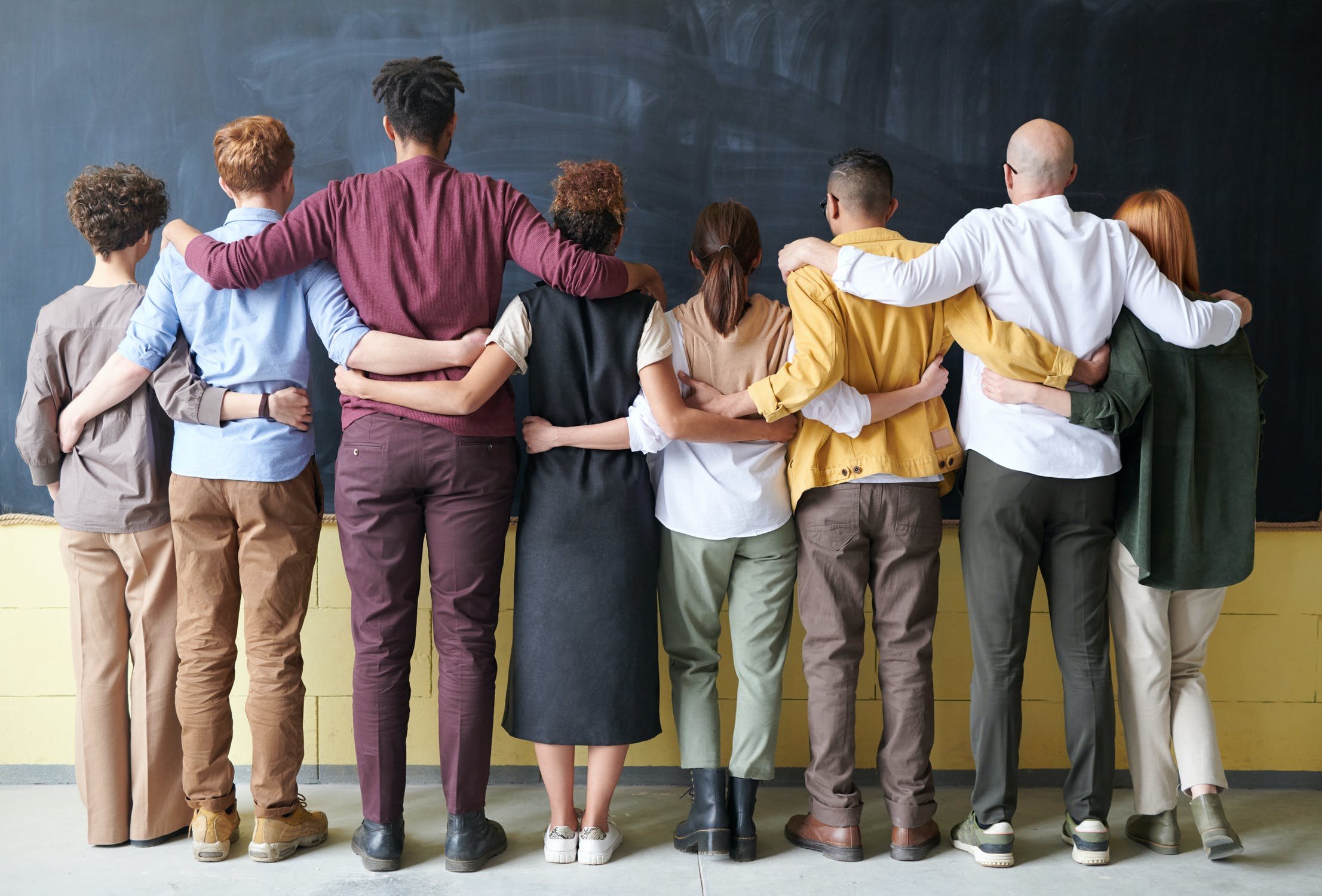By We Level Up Lawrenceville NJ | Author Jessica Lewis, PharmD | Editorial Policy | Research Policy
Introduction to Group Therapy for Family Members of Addicts
When addiction enters a family, it doesn’t just affect the person using substances—it creates ripples that touch everyone connected to them. Family members often find themselves caught in a storm of emotions: worry that keeps them up at night, guilt about what they could have done differently, and a profound sense of isolation that few others understand.
Group therapy for families of addicts offers a lifeline in these turbulent waters. At We Level Up NJ, we’ve seen firsthand how bringing together people with shared experiences creates a unique healing environment that individual therapy alone can’t provide.
The reality is stark: according to the National Institute on Drug Abuse (NIDA), over 40 million Americans struggle with substance use disorders, meaning millions of families are affected. Yet many family members suffer in silence, putting their well-being last while trying to “fix” their loved one’s addiction.
Our family group therapy programs are designed with a simple truth in mind: you need support too. By connecting with others walking similar paths, you’ll discover you’re not alone—and that healing is possible for your entire family system, not just the person in active recovery.
Why Group Therapy is Essential for Families Affected by Addiction
Living with a loved one’s addiction creates a unique kind of stress that transforms family dynamics in profound ways. Parents may find themselves lying awake wondering where their child is at 2 AM. Spouses might become hypervigilant, constantly checking for signs of relapse. Children often shoulder responsibilities far beyond their years when a parent struggles with substances.
These experiences create what therapists call “chronic trauma“—a persistent state of anxiety and hyper-awareness that takes a measurable toll on physical and mental health. Family members of addicts have higher rates of depression, anxiety, and stress-related health conditions.
Group therapy provides something crucial that even the most supportive friends can’t offer: validation from people who truly understand. Beyond emotional support, group therapy helps families understand addiction as a disease rather than a moral failing.
This shift in perspective reduces shame and blame while opening the door to more effective ways of supporting recovery—not just for the person with addiction but for the entire family system that’s been affected by it.

Benefits of Group Therapy for Family Members
Emotional Support That Truly Resonates
There’s something uniquely powerful about sitting in a room with people who nod in understanding when you describe the chaos addiction has brought to your home. Unlike well-meaning friends who might offer platitudes or quick fixes, group members get it on a visceral level.
This kind of validation creates a foundation for healing that’s difficult to find elsewhere.
Shared Experiences That Build Wisdom
Group therapy creates a collective wisdom that benefits everyone involved. When one member shares a strategy that helped them set boundaries with their addicted loved one, others can adapt that approach to their situations. These practical insights—tested in real-life conditions by people facing similar challenges—often prove more immediately useful than theoretical advice.
Members at different stages of their journey also provide perspective. Those newer to dealing with a loved one’s addiction gain hope from seeing others who have found stability, while those further along can reinforce their progress by supporting newcomers.
Learning Coping Strategies That Actually Work
Family members often develop unhealthy coping mechanisms in response to addiction: enabling behaviors, hypervigilance, or emotional shutdown. Group therapy provides a structured environment to identify and replace these patterns with healthier alternatives.
At We Level Up NJ, our groups teach specific skills that help family members reclaim their lives while supporting their loved one’s recovery journey more effectively.

Get Your Life Back
Find Hope & Recovery. Get Safe Comfortable Detox, Addiction Rehab & Mental Health Dual Diagnosis High-Quality Care at the We Level Up Treatment Centers Network.
Hotline (877) 378-4154How Group Therapy Works at We Level Up NJ
Structure of Sessions: Creating Safe Spaces for Transformation
Our family group therapy sessions at We Level Up NJ are thoughtfully designed to balance structure with flexibility. Each session typically begins with a brief check-in where members can share significant events or challenges from the past week. This helps the facilitator gauge the group’s needs while allowing members to release immediate concerns.
The main portion of each session varies based on the group’s stage and needs. Some sessions focus on education about addiction and recovery, while others emphasize skill-building or processing emotional experiences. We incorporate interactive elements like role-playing difficult conversations, guided journaling exercises, or small group discussions to keep sessions engaging and practical.
We aim to create an intimate environment where everyone has space to participate while providing enough diversity of experience to enrich discussions.
Qualifications of Facilitators: Expert Guidance Through Complex Territory
Our group facilitators bring specialized training in both addiction treatment and family systems therapy. Each holds at least a master’s degree in counseling, social work, or psychology, along with specific certifications in addiction counseling.
Beyond credentials, we select facilitators with exceptional empathy and group management skills. They’re experts at drawing out quieter members, gently redirecting those who might dominate discussions, and creating an atmosphere where vulnerability feels safe.
Duration and Frequency: Flexibility to Match Your Journey
We recognize that family members have their own lives and responsibilities. Our groups meet weekly, with daytime and evening options available to accommodate different schedules. While some members attend for six months or longer, others find that a shorter period provides the necessary tools.
We also offer specialized groups that run for a defined period focused on specific topics like parenting a child in recovery or rebuilding trust in relationships affected by addiction. These structured programs can be particularly helpful for those with limited availability or specific concerns.
Addressing Common Challenges Through Group Therapy
Breaking the Cycle of Codependency
Many family members develop codependent patterns without realizing it—their sense of worth becomes tied to “fixing” or “saving” their addicted loved one. These patterns become visible in group therapy through shared stories and gentle feedback.
Our facilitators guide members to recognize when healthy support crosses into unhealthy codependency and provide practical strategies for reclaiming their own identities and well-being.
Transforming Enabling into Healthy Support
The line between helping and enabling can be painfully blurry for family members. Is giving your adult child money for rent when they’ve spent their paycheck on substances an act of compassion or enabling? Is calling in sick for your spouse when they’re hungover protecting them or shielding them from consequences?
Group therapy provides a forum to explore these questions with others who understand the complexity. Members learn to distinguish between actions that truly support recovery and those that—despite good intentions—may sustain addiction.
Members practice new responses to common situations through role-playing exercises and group feedback, building confidence to offer healthy support without enabling destructive behaviors.
Rebuilding Communication Bridges
Addiction erodes communication within families. Conversations become minefields of accusations, defensiveness, and unspoken resentments. Group therapy offers a laboratory for developing new communication patterns.
These improved communication skills not only help in interactions with the addicted family member but often transform relationships throughout the family system.

Processing Complex Emotions
Family members often carry complicated emotional burdens: anger at the person for choosing substances over family, guilt about their own perceived failures, grief for the relationship that existed before addiction, and fear about the future.
Group therapy provides a judgment-free space to express these emotions—even the ones that feel unacceptable or shameful.
When a mother can admit she sometimes hates her child’s addiction so much that the feeling spills over onto the child, or a husband can acknowledge the rage he feels when his wife relapses again, these emotions lose some of their power through expression and validation.
Comfortable Facilities & Amenities
High-Quality Addiction & Mental Health Rehabilitation Treatment
Rehab Centers TourRenowned Addiction Centers. Serene Private Facilities. Inpatient rehab programs vary.
Addiction Helpline (877) 378-4154Proven recovery success experience, backed by a Team w/ History of:
15+
Years of Unified Experience
100s
5-Star Reviews Across Our Centers
10K
Recovery Success Stories Across Our Network
- Low Patient to Therapist Ratio
- Onsite Medical Detox Center
- Comprehensive Dual-Diagnosis Treatment
- Complimentary Family & Alumni Programs
- Coaching, Recovery & Personal Development Events
Evidence-Based Approaches Used in Group Therapy
At We Level Up NJ, our family group therapy integrates several evidence-based therapeutic approaches, each selected for its effectiveness in addressing the specific challenges families face when supporting a loved one with addiction.
Cognitive-Behavioral Therapy (CBT)
CBT helps family members identify and change thought patterns that contribute to unhealthy behaviors and emotional distress. For example, a mother might catastrophize when her son doesn’t answer the phone (“He’s relapsed and is lying in a ditch somewhere”), leading to anxiety and controlling behaviors. Through CBT techniques, she can learn to challenge these automatic thoughts and consider more balanced possibilities.
Our groups incorporate CBT exercises like thought records, where members document triggering situations, automatic thoughts, and more balanced alternatives. This cognitive restructuring helps reduce anxiety and improves decision-making during stressful situations.
Family Systems Therapy
This approach recognizes that families function as interconnected systems where each person’s behaviors affect everyone else. When addiction enters the system, families often develop patterns that unintentionally maintain the problem.
In our groups, members gain insight into these dynamics by mapping their family systems and identifying roles they’ve adopted (like the enabler, the hero, or the scapegoat). This awareness creates opportunities to step out of rigid roles and develop more flexible, healthy ways of relating to each other.
Mindfulness Techniques
Living with a loved one’s addiction creates chronic stress that can lead to constant anxiety and reactivity. Mindfulness practices help family members develop present-moment awareness and emotional regulation skills.
Our groups incorporate brief mindfulness exercises at the beginning of sessions to help members center themselves. We also teach specific techniques for managing overwhelming emotions, like the STOP skill (Stop, Take a breath, Observe, Proceed mindfully) that can be used during triggering interactions with their loved ones.
These evidence-based approaches are woven together to create a comprehensive support system that addresses the cognitive, emotional, and relational challenges families face during recovery.
World-class, Accredited, 5-Star Reviewed, Effective Addiction & Mental Health Programs. Complete Behavioral Health Inpatient Rehab, Detox plus Co-occuring Disorders Therapy.
CALL (877) 378-4154End the Addiction Pain. End the Emotional Rollercoaster. Get Your Life Back. Start Drug, Alcohol & Dual Diagnosis Mental Health Treatment Now. Get Free No-obligation Guidance by Substance Abuse Specialists Who Understand Addiction & Mental Health Recovery & Know How to Help.
What to Expect from Group Therapy at We Level Up NJ
Initial Assessment: Finding Your Right Fit
Your journey begins with a comprehensive assessment with one of our family specialists. This one-on-one conversation helps us understand your specific situation, concerns, and goals. We’ll ask about your relationship with the person struggling with addiction, how the addiction has affected your life, and what you hope to gain from group therapy.
This assessment serves two important purposes: it helps us match you with the most appropriate group and gives you a chance to ask questions and address any concerns about the group process.
Some family members worry about confidentiality or feel anxious about sharing personal struggles with strangers—our intake specialists will address these concerns and help you feel prepared for your first session.
Group Dynamics: Building Trust and Connection
Walking into your first group session can feel intimidating, but our facilitators are skilled at creating a welcoming environment. You’ll find a diverse group of people united by common experiences—parents, partners, siblings, and adult children of people with addiction, all seeking healthier ways to cope and support their loved ones.
Confidentiality is the foundation of our groups. Members agree that what’s shared in the room stays in the room, creating a safe space for authentic expression. Our facilitators actively foster a non-judgmental atmosphere where all feelings and experiences are valid.
Outcomes and Goals: Measuring Progress on Your Terms
While each member’s journey is unique, we help you establish personal goals to measure your progress. Our facilitators check in regularly about these goals, helping you recognize progress that might otherwise go unnoticed.
Many members report significant improvements in their mental health, relationship quality, and sense of empowerment, regardless of whether their loved one is actively engaged in recovery.
How Group Therapy Supports Long-Term Recovery for the Entire Family
Addiction recovery isn’t just about the person who stops using substances—it’s about healing the entire family system that’s been impacted. Research consistently shows that when families receive support and education, the person with addiction has better outcomes too.

A study published in the Journal of Substance Use and Addiction Treatment found that addicted individuals whose family members participated in therapy were more likely to remain in treatment and had significantly higher abstinence rates. This makes intuitive sense: when the home environment becomes more stable and supportive, it creates fertile ground for recovery to take root.
Beyond supporting your loved one’s recovery, group therapy helps families rebuild what addiction damaged. Trust, which may have been severely compromised by lies and broken promises, can gradually be restored through consistent, healthy interactions. Communication patterns that devolve into accusations and defensiveness can transform into honest, respectful dialogue.
Perhaps most importantly, family members rediscover joy and purpose beyond the addiction that consumed so much of their attention and energy.
This renewed vitality within the family creates a positive cycle. As family members become healthier, they’re better equipped to offer genuine support rather than control or enabling. This, in turn, creates an environment where recovery can flourish for everyone involved.
Get Help. Get Better. Get Your Life Back.
Searching for Accredited Drug & Alcohol Rehab Centers Near You? Or Mental Health Support?
Even if you have failed previously, relapsed, or are in a difficult crisis, we stand ready to support you. Our trusted behavioral health specialists will not give up on you. Call us when you feel ready or want someone to speak to about therapy alternatives to change your life. Even if we cannot assist you, we will lead you wherever you can get support. There is no obligation. Call our hotline today.
FREE Addiction Hotline – Call 24/7Getting Started with Group Therapy at We Level Up NJ
Taking the first step toward healing is often the hardest part. At We Level Up NJ, we’ve made the process as straightforward as possible:
- Call our dedicated family support line at 877-378-4154 for a confidential conversation about your situation.
- Schedule an initial assessment with one of our family specialists, available in person or virtually.
- Based on your assessment, we’ll recommend the most appropriate group and provide all the information you need to join.
- Attend your first session, where our facilitator will warmly welcome you and help you integrate into the group.
Many insurance plans cover family therapy services, and we offer flexible payment options for those without coverage. Don’t let financial concerns prevent you from getting the support you deserve—call us to discuss solutions that work for your situation.
Virtual groups are available for those unable to attend in-person sessions at our New Jersey facility, making support accessible regardless of your location or schedule constraints.
Your Healing Journey Begins Here
Addiction may have entered your family uninvited, but you don’t have to face its impact alone. The shared wisdom, understanding, and support found in group therapy can transform your experience from isolation and helplessness to connection and empowerment.
At We Level Up NJ, we’ve witnessed countless family members reclaim their lives while learning to support their loved ones in healthier ways. The journey isn’t always linear, and healing takes time—but with the right support, profound change is possible.
Ready to take that first step? Contact We Level Up NJ today at 877-378-4154 to learn more about our family group therapy programs.
Frequently Asked Questions
Do you have to pay for group therapy for families in NJ?
Many insurance plans cover family therapy services, including group therapy, as part of their behavioral health benefits. At We Level Up NJ, we work with most major insurance providers and will verify your coverage before you begin.
We believe financial constraints shouldn’t prevent families from receiving the help they need—call us to discuss options that fit your situation.
How long does group therapy for families last in New Jersey?
The duration of group therapy varies based on individual needs and goals. In general, group therapy may be close-ended, with a pre-determined number of sessions. Or group therapy can be open-ended, as long as the participants and providers are willing. Each session may last around 90 to 120 minutes.
There’s no one-size-fits-all timeline—your journey is unique, and our team will help you determine the right duration based on your progress and changing needs.
Where in New Jersey can you find group therapy for families?
We Level Up NJ offers comprehensive family group therapy programs at our facility in North Jersey, conveniently located for residents throughout the state.
Beyond our center, family support groups can be found through county mental health services, community centers, and hospitals across New Jersey. Organizations like Nar-Anon and Al-Anon also host meetings in many NJ counties.
Experience Transformative Recovery at the We Level Up Treatment Center.
See our authentic success stories. Get inspired. Get the help you deserve.



Start a New Life
Begin with a free call to an addiction & behavioral health treatment advisor. Learn more about our dual-diagnosis programs. The We Level Up treatment center network delivers various recovery programs at each treatment facility. Call to learn more.
- Personalized Care
- Caring Accountable Staff
- Comfortable Amenities
- Licensed & Accredited
- Renowned w/ 5-Star Reviews





